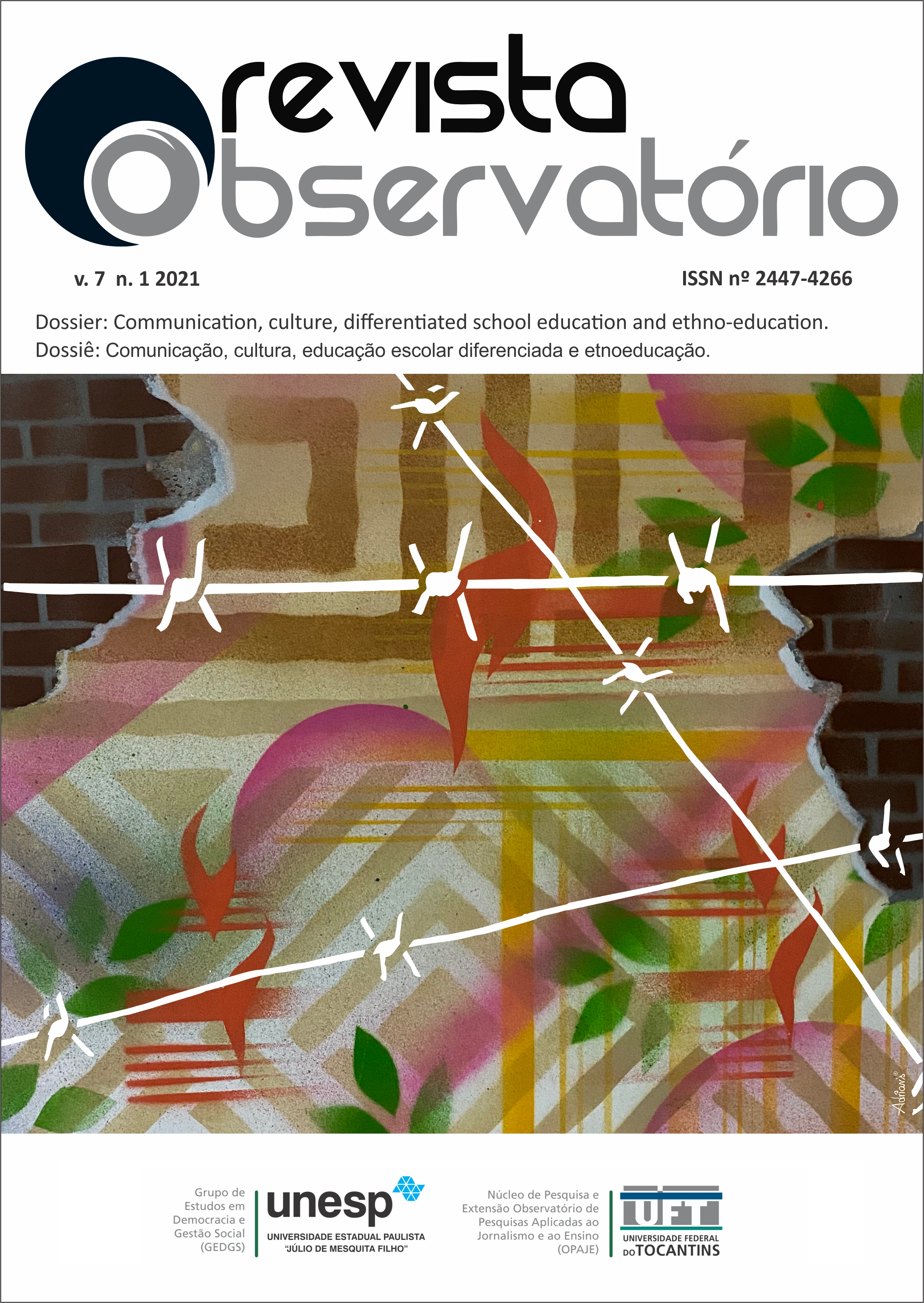ACTIVE METHODOLOGY AND PHYSICAL EDUCATION TEACHING: a literature review
DOI :
https://doi.org/10.20873/uft.2447-4266.2021v7n1a12enMots-clés :
Active methodologies, Teaching, Learning, PERésumé
In this research we approach the use of Active Methodologies in the teaching of Physical Education. The general objective is to know the contributions of the active methodologies in the development of the teaching and learning process in Physical Education classes. The research was elaborated in a critical line of investigation using the qualitative approach. This is a bibliographic study with the steps: choice of theme, preliminary bibliographic survey, interpretative textual analysis and problematization. It is structured in subtopics that discuss the theme. It is noteworthy that the active methodologies are based on ways of developing the learning process, using real or simulated experiences, aiming at the conditions to successfully solve challenges arising from the essential activities of social practice in different contexts, because they are based on teaching strategies based on a critical and reflective pedagogical conception that allow reading and intervention on reality, favoring the interaction between the different actors of the process and valuing a collective construction of knowledge and its different knowledge and learning scenarios. In addition, they are practices that stimulate creativity in building problem solutions and promote freedom in the process of thinking and acting.
Téléchargements
Références
Abrão, K. R., & Del Pino, J. C. (2016). Cognição e aprendizagem no espaço da tecnologia. Revista Ibero-Americana de Estudos Em Educação, 11(4), 1776–1798. https://doi.org/10.21723/riaee.v11.n4.5934
Bastos, R. dos S. (2019). A EDUCAÇÃO PARA A CIDADANIA GLOBAL DA UNESCO E SEUS NEXOS COM A FORMAÇÃO DE PROFESSORES DE EDUCAÇÃO FÍSICA NO PARÁ [Universidade federal do Pará]. https://scholar.google.com.br/scholar?hl=pt-BR&as_sdt=0%2C5&q=A+educação+para+a+cidadania+global+da+UNESCO+e+seus+nexos+com+a+formação+de+professores+de+educação+física+no+Pará&btnG=
Brasil. (2013). Diretrizes Curriculares Nacionais Gerais da Educação Básica.
Fernandes, K. B. (2017). ATIVIDADE FÍSICA E SAÚDE NA EDUCAÇÃO FÍSICA ESCOLAR: PERSPECTIVA DE DOCENTES DO ENSINO SUPERIOR.
Marconi, M., & Lakatos, E. (2003). Fundamentos de metodologia científica. In Editora Atlas S. A. https://doi.org/10.1590/S1517-97022003000100005
Martins, P. C. (2019). A ORGANIZAÇÃO DA EDUCAÇÃO FÍSICA NA EDUCAÇÃO INFANTIL NO DEI/CEPAE/UFG. https://repositorio.bc.ufg.br/tede/handle/tede/10128
Metzner, A. C. (2019). Legislação sobre a formação em Educação Física no Brasil: formando professores ou profissionais? [Universidade Estadual Paulista (Unesp)]. https://repositorio.unesp.br/handle/11449/191044
Miranda, C. J. M. de. (2019). O PROCESSO DE APRENDIZAGEM SIGNIFICATIVA DE CONCEITOS EM AULAS DE EDUCAÇÃO FÍSICA DO ENSINO MÉDIO [Instituto Oswaldo Cruz]. https://www.arca.fiocruz.br/handle/icict/39523
Nunes, T. C. F. (2018). METODOLOGIAS DE ENSINO EM CURSOS DE LICENCIATURA EM EDUCAÇÃO FÍSICA: UMA DISCUSSÃO NECESSÁRIA [Universidade Estadual do Ceará (UECE)]. https://doi.org/10.1017/CBO9781107415324.004
Saviczki, S. C. (2019). PRÁTICA PEDAGÓGICA DE PROFESSORES EM CURSOS TÉCNICOS DE NÍVEL MÉDIO: APLICAÇÃO DE METODOLOGIAS ATIVAS [Escola de Humanidades]. http://tede2.pucrs.br/tede2/handle/tede/8589
TRIANI, A. P. (2019). CONDIÇÕES DE TRABALHO E ATUAÇÃO DOCENTE: A REALIDADE DOS PROFESSORES DE EDUCAÇÃO FÍSICA DE BOA VISTA - RR [Universidade Federal de Juiz de Fora]. http://www.ufjf.br/ppge/files/2019/03/TESE-ANDRÉ-TRIANI.pdf
Ventura, P. P. B. (2019). Indicadores de metodologias ativas com suporte das tecnologias digitais: estudo com docentes do Instituto Federal de Educação, Ciência e Tecnologia do Ceará [Universidade Federal do Ceará-UFC]. http://www.repositorio.ufc.br/bitstream/riufc/40528/3/2019_tese_ppbventura.pdf
Téléchargements
Publié-e
Comment citer
Numéro
Rubrique
Licence
[PT] Autores que publicam nesta revista concordam com os seguintes termos:
1. Autores mantém os direitos autorais e concedem à revista, sem pagamento, o direito de primeira publicação, com o trabalho simultaneamente licenciado sob a Creative Commons Attribution License (CC BY-NC 4.0), permitindo o compartilhamento do trabalho com reconhecimento da autoria do trabalho e publicação inicial nesta revista.
Leia todos os termos dos direitos autorais aqui.

